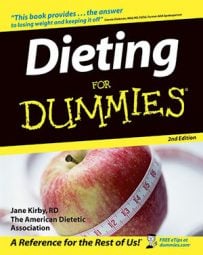Although people are born with a love of sugar and a predisposition to enjoy fat, those preferences can be replaced over time. If you’ve already made the switch from whole milk to lowfat or fat-free milk, you know that the full-fat version is almost unpleasantly rich after you’re accustomed to the way fat-free milk tastes and feels in your mouth.
Try these tricks to train your taste buds to appreciate less sweet and less fatty foods:
Use ingredients that are naturally low in fat or fat free. Try pureed fruits as a sauce for desserts or meats, lowfat yogurt to thicken shakes or fruit smoothies and dips, and evaporated fat-free milk to add body to cream sauces.
Add sweetness without sugar. Instead of adding a spoonful of sugar, squeeze citrus juice over fresh fruit to enhance flavor. Cut the amount of sugar that you add to coffee or tea by half. Sprinkle fresh fruit over pancakes and waffles instead of syrup. Do the same over cereal. Add dried fruit and sweet spices, such as nutmeg, cinnamon, and ginger to hot cereals to intensify sweetness without adding sugar.
Enjoy the real thing. A small portion of a high-fat or high-sugar food can be super satisfying if you eat it slowly and deliberately. Giving in to a sweet craving from time to time may be healthier than trying to eat around the craving or feeling unsatisfied by artificial concoctions. Instead of gulping big portions of a “fake” food, train yourself to savor a saner sized dessert, cookie, or even candy — on occasion.

